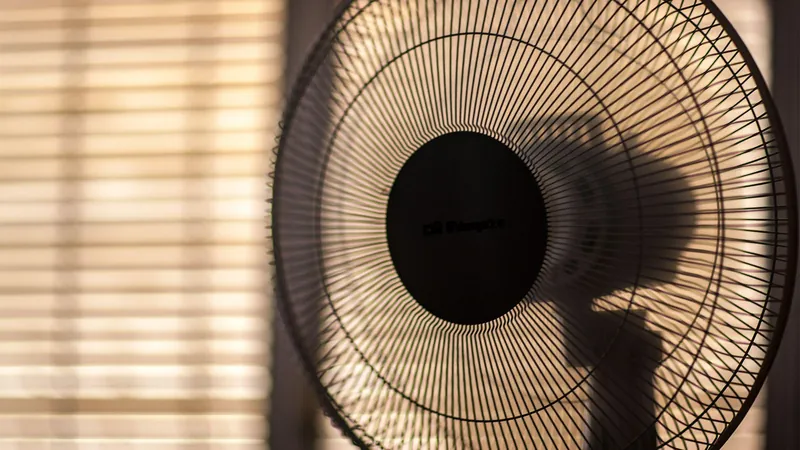
Heatwave Alert: Simple Cooling Strategies Can Save Lives in 100-Degree Weather!
2024-11-07
Author: Ming
Introduction
As scorching temperatures surge, especially during heatwaves, protecting the heart becomes critical—especially for older adults. New research reveals that simple, cost-effective strategies can significantly alleviate heat-induced cardiac strain, a pressing issue, particularly for the elderly and those with heart conditions.
Research Findings
A study conducted by researchers from the University of Sydney and the Montreal Heart Institute demonstrated that while typical recommendations often emphasize air conditioning as the best defense against heat, both electric fans and skin wetting provide effective alternatives when air conditioning is unavailable. In hot and humid conditions averaging 100.4°F (38.0°C), these techniques proved successful in reducing cardiac strain, measured in rate-pressure product (a combination of heart rate and blood pressure).
Cooling Strategies
Here's the breakdown of findings: - **Electric Fan Usage:** Reduced cardiac strain by an impressive 517 bpm x mm Hg (P=0.004). - **Skin Wetting:** Decreased strain by 468 bpm x mm Hg (P=0.01). - **Combining Both Methods:** This led to the most significant reduction of 750 bpm x mm Hg (P<0.001).
Extreme Conditions
However, the situation differs drastically in extremely hot and dry conditions (averaging 113°F or 45°C). In these environments, the use of fans actually increased cardiac strain, prompting researchers to cease further experiments after 43% of participants reported feeling unwell. Conversely, skin wetting remained beneficial, reducing strain by 478 bpm x mm Hg, irrespective of the presence of coronary artery disease.
Expert Insights
Dr. Ollie Jay, leading the research, pointed out that the health hazards posed by extreme heat are escalating due to climate change, making vulnerable groups—particularly older adults and those with heart disease—particularly at risk. “Understanding the impact of different cooling strategies on heart health is crucial to safeguard these individuals during summer’s peak heat," said Jay.
Takeaway Messages
Adding to this, co-author Dr. Daniel Gagnon highlighted the vital takeaway: "Different weather conditions dictate which cooling strategies should be employed. This knowledge will be instrumental in promoting safety during heatwaves for older adults."
CDC Recommendations
The Centers for Disease Control and Prevention (CDC) notes that older individuals are highly susceptible to sudden temperature shifts and often have chronic ailments or medications that impair their body's ability to manage heat. While air conditioning is the gold standard for cooling, it’s often inaccessible, making low-cost alternatives like fans and skin wetting essential.
Study Demographics
Interesting details about the study include the demographics of participants—31 seniors without coronary artery disease and 27 with CAD, with average ages of 70 and 66, respectively. The trials included multiple sessions to ensure accurate results, navigating the extremes of humidity and temperature.
Conclusion
Ultimately, these findings reveal that while air conditioning remains ideal, older adults need to know they have viable cooling strategies within reach during the sweltering summer months. With the risks of extreme heat on the rise, these simple measures could be life-saving. Be prepared, stay cool, and keep your heart safe as the heat intensifies!




 Brasil (PT)
Brasil (PT)
 Canada (EN)
Canada (EN)
 Chile (ES)
Chile (ES)
 España (ES)
España (ES)
 France (FR)
France (FR)
 Hong Kong (EN)
Hong Kong (EN)
 Italia (IT)
Italia (IT)
 日本 (JA)
日本 (JA)
 Magyarország (HU)
Magyarország (HU)
 Norge (NO)
Norge (NO)
 Polska (PL)
Polska (PL)
 Schweiz (DE)
Schweiz (DE)
 Singapore (EN)
Singapore (EN)
 Sverige (SV)
Sverige (SV)
 Suomi (FI)
Suomi (FI)
 Türkiye (TR)
Türkiye (TR)